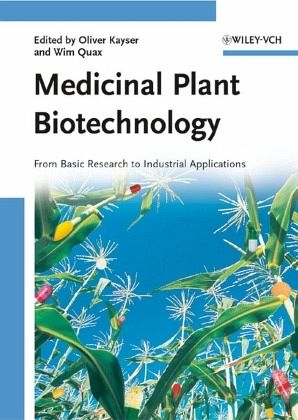Nicht lieferbar

Medicinal Plant Biotechnology, 2 Vols.
From Basic Research to Industrial Applications
Ed. by Oliver Kayser and Wim Quax
Versandkostenfrei!
Nicht lieferbar
This unique overview of plants and transgenic techniques of great scientific, medicinal and economic value for both industry and academia covers the whole spectrum from cell culture techniques, via genetic engineering and secondary product metabolism right up to the use of transgenic plants for the production of bioactive compounds. Practical examples are given throughout, including the production of cancer therapeutics, functional food, and flavor compounds in plants.Of particular interest to the pharmaceutical and biotechnological industries, as well as medicinal chemists, biochemists, and m...
This unique overview of plants and transgenic techniques of great scientific, medicinal and economic value for both industry and academia covers the whole spectrum from cell culture techniques, via genetic engineering and secondary product metabolism right up to the use of transgenic plants for the production of bioactive compounds. Practical examples are given throughout, including the production of cancer therapeutics, functional food, and flavor compounds in plants.Of particular interest to the pharmaceutical and biotechnological industries, as well as medicinal chemists, biochemists, and molecular biologists.



